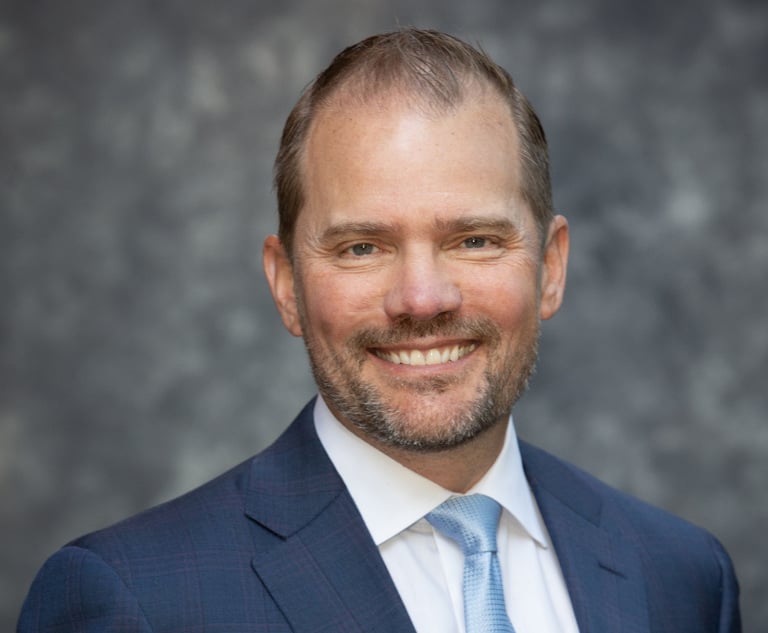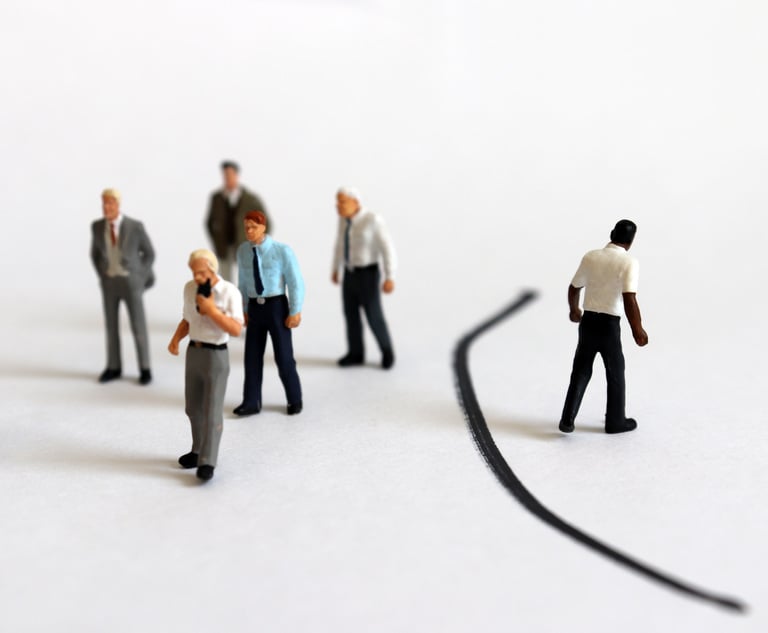 A prison cell/credit: Bigstock
A prison cell/credit: BigstockLooking at 'Human Factors' for Wrongful Conviction Day
"I had a strong alibi and scientific evidence indicating I was not the perpetrator," said Georgia Innocence Project Board Member Calvin C. Johnson Jr. "But somehow four people claim they saw me. Coupled with an all-white jury judging a black man accused of assaulting two white women, I did not stand a chance." DNA evidence exonerated him after he spent 16 years in prison.
October 01, 2019 at 12:40 PM
3 minute read
The Georgia Innocence Project and the Innocence Network will mark Wrongful Conviction Day Wednesday with talks and presentations at schools around the state.
"By understanding the role that human factors such as implicit bias, tunnel vision, and memory malleability play in the criminal legal system, we can greatly reduce their negative impact and help prevent wrongful convictions," Georgia Innocence Project Executive Director Clare Gilbert said in a news release Tuesday.
The Innocence Network created Wrongful Conviction Day in 2014 as an annual international observance dedicated to ending wrongful convictions and highlighting the plight of those convicted of crimes they did not commit. The goal is to raise awareness about the causes and consequences of wrongful conviction, and to recognize the tremendous personal, social and emotional costs of wrongful conviction for innocent people and their families.
This year, the Innocence Network has collaborated with the International Association of Chiefs of Police to bring awareness to how the human factors affect the criminal justice system, and how to mitigate their negative impact.
Advocates and exonerees will be speaking to students in more than a dozen different Atlanta- and Macon-area schools.
One of those is Georgia Innocence Project Board Member Calvin C. Johnson Jr. He spent 16 years in prison for a crime he did not commit before DNA testing proved his innocence.
"I had a strong alibi and scientific evidence indicating I was not the perpetrator," Johnson said in the news release. "But somehow four people claim they saw me. Coupled with an all-white jury judging a black man accused of assaulting two white women, I did not stand a chance."
Marquis at the Rialto Theater and 7 Stages Theater will mark the day with a video.
DeKalb County Public Libraries will host readings of the children's storybook "The Trial of Cardigan Jones."
"The criminal legal system is a human system and, as such, produces errors based in large part on psychological factors—from cognitive bias to tunnel vision—that enable wrongful convictions," the group said in announcing the news. "If the legal system fails to achieve justice not because it is 'bad,' but because it is made up of fallible humans, then education focused on cognitive biases, and their impact on justice is critically important."
The group is encouraging those who attend events Wednesday to take pictures and post them to social media using the hashtag #WrongfulConvictionDay and tag @gainnocence. The events will conclude at 7 p.m. with a trivia contest at the Georgia Beer Garden.
This content has been archived. It is available through our partners, LexisNexis® and Bloomberg Law.
To view this content, please continue to their sites.
Not a Lexis Subscriber?
Subscribe Now
Not a Bloomberg Law Subscriber?
Subscribe Now
NOT FOR REPRINT
© 2024 ALM Global, LLC, All Rights Reserved. Request academic re-use from www.copyright.com. All other uses, submit a request to [email protected]. For more information visit Asset & Logo Licensing.
You Might Like
View All
Lawyers Can Live Worthy of the Calling They Have Received and The Gifts With Which They Have Been Blessed

Atlanta-Based Fearless Fund Ends Black-Only Entrepreneurial Grant Contest After Settling Civil Rights Lawsuit

Can You Contract Away Your Right to Leave Bad Google Reviews? Court of Appeals Set to Decide

Trending Stories
Who Got The Work
Michael G. Bongiorno, Andrew Scott Dulberg and Elizabeth E. Driscoll from Wilmer Cutler Pickering Hale and Dorr have stepped in to represent Symbotic Inc., an A.I.-enabled technology platform that focuses on increasing supply chain efficiency, and other defendants in a pending shareholder derivative lawsuit. The case, filed Oct. 2 in Massachusetts District Court by the Brown Law Firm on behalf of Stephen Austen, accuses certain officers and directors of misleading investors in regard to Symbotic's potential for margin growth by failing to disclose that the company was not equipped to timely deploy its systems or manage expenses through project delays. The case, assigned to U.S. District Judge Nathaniel M. Gorton, is 1:24-cv-12522, Austen v. Cohen et al.
Who Got The Work
Edmund Polubinski and Marie Killmond of Davis Polk & Wardwell have entered appearances for data platform software development company MongoDB and other defendants in a pending shareholder derivative lawsuit. The action, filed Oct. 7 in New York Southern District Court by the Brown Law Firm, accuses the company's directors and/or officers of falsely expressing confidence in the company’s restructuring of its sales incentive plan and downplaying the severity of decreases in its upfront commitments. The case is 1:24-cv-07594, Roy v. Ittycheria et al.
Who Got The Work
Amy O. Bruchs and Kurt F. Ellison of Michael Best & Friedrich have entered appearances for Epic Systems Corp. in a pending employment discrimination lawsuit. The suit was filed Sept. 7 in Wisconsin Western District Court by Levine Eisberner LLC and Siri & Glimstad on behalf of a project manager who claims that he was wrongfully terminated after applying for a religious exemption to the defendant's COVID-19 vaccine mandate. The case, assigned to U.S. Magistrate Judge Anita Marie Boor, is 3:24-cv-00630, Secker, Nathan v. Epic Systems Corporation.
Who Got The Work
David X. Sullivan, Thomas J. Finn and Gregory A. Hall from McCarter & English have entered appearances for Sunrun Installation Services in a pending civil rights lawsuit. The complaint was filed Sept. 4 in Connecticut District Court by attorney Robert M. Berke on behalf of former employee George Edward Steins, who was arrested and charged with employing an unregistered home improvement salesperson. The complaint alleges that had Sunrun informed the Connecticut Department of Consumer Protection that the plaintiff's employment had ended in 2017 and that he no longer held Sunrun's home improvement contractor license, he would not have been hit with charges, which were dismissed in May 2024. The case, assigned to U.S. District Judge Jeffrey A. Meyer, is 3:24-cv-01423, Steins v. Sunrun, Inc. et al.
Who Got The Work
Greenberg Traurig shareholder Joshua L. Raskin has entered an appearance for boohoo.com UK Ltd. in a pending patent infringement lawsuit. The suit, filed Sept. 3 in Texas Eastern District Court by Rozier Hardt McDonough on behalf of Alto Dynamics, asserts five patents related to an online shopping platform. The case, assigned to U.S. District Judge Rodney Gilstrap, is 2:24-cv-00719, Alto Dynamics, LLC v. boohoo.com UK Limited.
Featured Firms
Law Offices of Gary Martin Hays & Associates, P.C.
(470) 294-1674
Law Offices of Mark E. Salomone
(857) 444-6468
Smith & Hassler
(713) 739-1250






